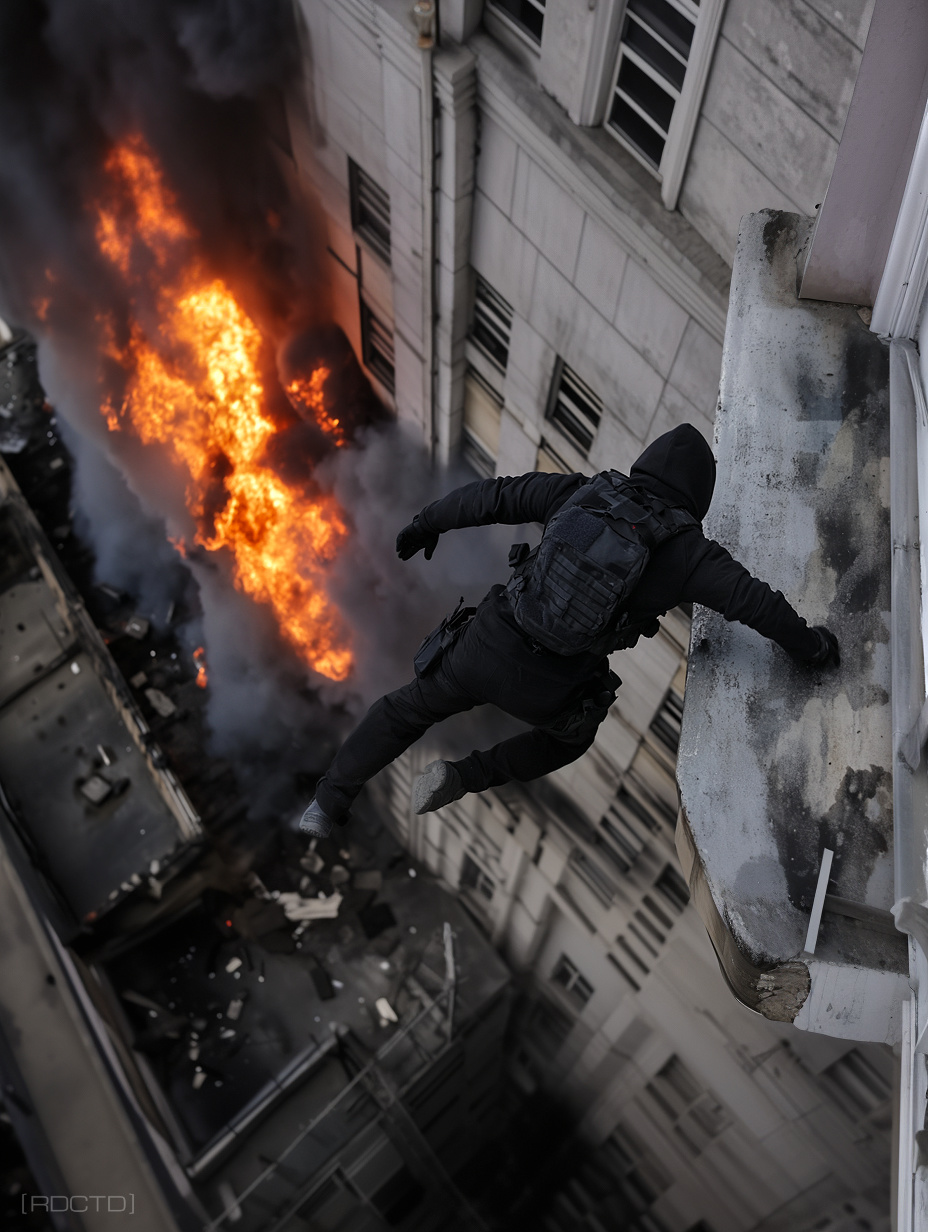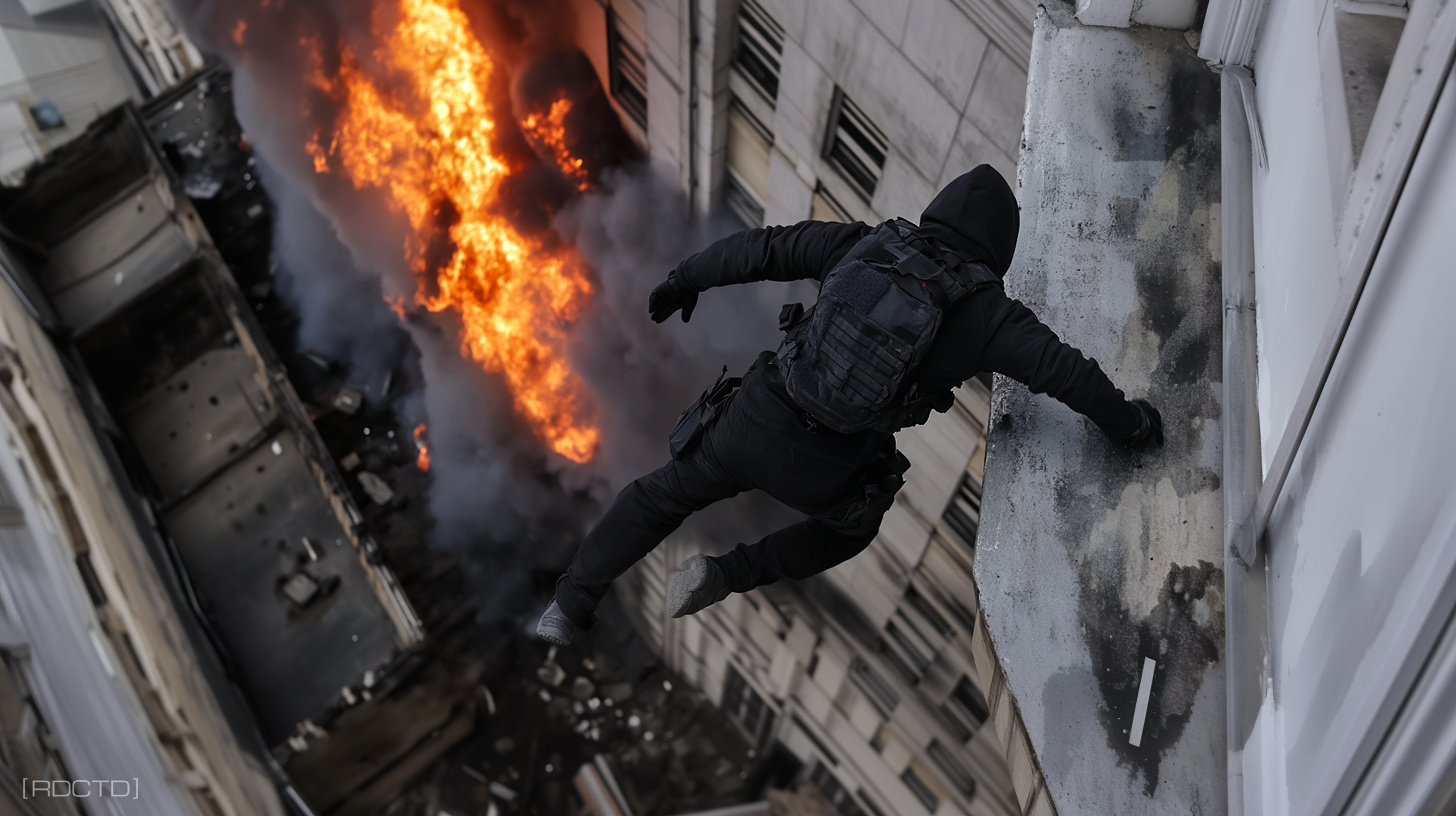 Training is code that rewrites you because every repetition, drill, and scenario installs new behavioral and cognitive patterns into your system, replacing hesitation with instinct and reaction – transforming who you are.
Training is code that rewrites you because every repetition, drill, and scenario installs new behavioral and cognitive patterns into your system, replacing hesitation with instinct and reaction – transforming who you are. ![]()
Training isn’t about learning what to do, it’s about burning into your system what you’ll do when there’s no time to think.
This isn’t just a metaphor, it’s a hard truth every operative or professional has to internalize to be at their best. When we talk about training, we’re not just referring to the acquisition of skills. We’re talking about a fundamental reprogramming of how you think, move, react, and are.
Just like tech and all software runs on code, your responses in high-stress environments – your instincts, reflexes, and decision-making – run on the “code” you install through training. It’s a cumulative process that goes deeper than muscle memory. Done right, training doesn’t just prepare you for scenarios. It alters who you are in those scenarios.
You’re not just practicing a skill, you’re programming a response.
In covert operations, your margin for error is near zero. You can’t afford to think in the moment, you need to react without thinking. That kind of response only comes from embedding behaviors into your neural circuitry. Repetition under stress, scenario-based drills, and pain inoculation aren’t there to toughen you up – they’re writing and rewriting code, upgrading you.
Each rep, each failure, each correction – it all contributes to an evolving program. You stop being the person who analyzes the situation first and start being the one who acts while others freeze. This is the essence of why operatives train obsessively: not to learn something new, but to become something new, continuously newer and better with “upgrades”.
This transformation isn’t about brute strength, it’s about turning precision, timing, and intuition into automatic reflexes. In the middle of a compromise or a contact with a hostile asset, you won’t have the luxury of planning – you’ll act based on what you’ve drilled a thousand times.
If your training hasn’t prepared you to act decisively, efficiently, and silently, then it’s failed you – because the field won’t wait for you to figure it out.
A well-trained operative doesn’t act bravely. He just runs the code his training installed; calm, efficient, and fast.
This isn’t just physical. Mental reprogramming is just as critical, especially in tradecraft. Surveillance detection, elicitation, cover maintenance; these skills depend on rewiring how you perceive social cues, manage stress, and control your own emotions. You train yourself to see patterns others miss, to remain calm under scrutiny, to lie convincingly without flinching.
You’re training your brain to override its natural instincts. You’re rewriting the emotional code – training your nervous system to treat a tail job or a hostile border crossing like a walk to the corner store.
You build psychological tolerance to ambiguity, pressure, and fear – not by ignoring them, but by learning to operate through them.
You train to make deception feel natural, and danger feel procedural. Over time, your emotional baseline resets – what once triggered panic becomes muted, and what others call high-stress becomes just another day at the office.
If you still need to think in the moment, you’re not done training for the moment.
There’s a darker angle. Once the code is rewritten, it’s hard to go back. Training conditions you to detach, to compartmentalize, and to be cold and calculating. This is essential in the field, but it comes at a price.
You’ll notice it in how you react in everyday “normal” life; how you scan a room, how you distrust first impressions, how your tone flattens when you talk about violence – all without trying to as natural responses. Training leaves permanent changes. For most, it’s not a switch you flip on and off.
Relationships can suffer, because the same emotional control that keeps you alive under pressure can make you cold when you’re supposed to be vulnerable. You might find yourself rehearsing exits from buildings without realizing it, or sitting in restaurants with your back to the wall as a habit.
The people around you won’t always understand that the person they’re talking to has been trained to see them, and everything else, as a potential variable in a threat equation or a resourceful asset to utilize.
Skills fade, instincts persist. That’s why we don’t train for memory, we train for transformation.
To train like an operative, you need to treat your mind and body as systems under constant development. This requires you to stop viewing training as something you have to attend like a chore or errand and start treating it as a deliberate act of self-programming that you want to do.
This rewiring doesn’t happen in a weekend – it’s daily, focused, and often uncomfortable. The goal isn’t to train until you get it right, but to train until doing it wrong is no longer possible, then upgrading again and again.
Untrained, you hesitate. Trained, you execute. Rewritten, you don’t even notice the gap.
That’s why quality matters. Poor training writes bad code. Bad habits reinforced through training will overwrite your instincts just as effectively as good ones. And in the field, that can be fatal.
This is why elite units obsess over fundamentals. It’s not because they enjoy drills, it’s because they understand that each repetition is an update to the system. Training is software development for the human machine, and every bug needs to be eliminated in the sandbox before the system goes live.
Sloppy mechanics under pressure don’t stay isolated, they become part of your default behavior, including “bad tradecraft”. If you’re cutting corners during dry runs or brushing off mistakes without correction, you’re teaching your nervous system to fail in real-world conditions.
Precision in training is about more than discipline, it’s how you build a system you can trust when everything around you goes sideways.
Train until emotion no longer decides action.
Whether you’re an operative or a civilian trying to sharpen your edge, understand that every repetition, every scenario, every debrief is changing who you are. It’s not just about being ready. It’s about becoming ready by default.
That’s the power of training and once it’s done right, you don’t rise to the occasion. You default to your programming.
![]()
// Every rep writes a line of code in the operating system called ‘you’.
[INTEL : CIA ‘5 Hour Rule’ Skill Training]
[OPTICS : Paris, France]
![[RDCTD]](https://rdctd.pro/wp-content/uploads/RDCTD-Covert-Operative-Tradecraft-Guide-LOGO-tk.png)
![[RDCTD]](https://rdctd.pro/wp-content/uploads/RDCTD-Covert-Operative-Tradecraft-Guide-LOGO-mobile.png)

